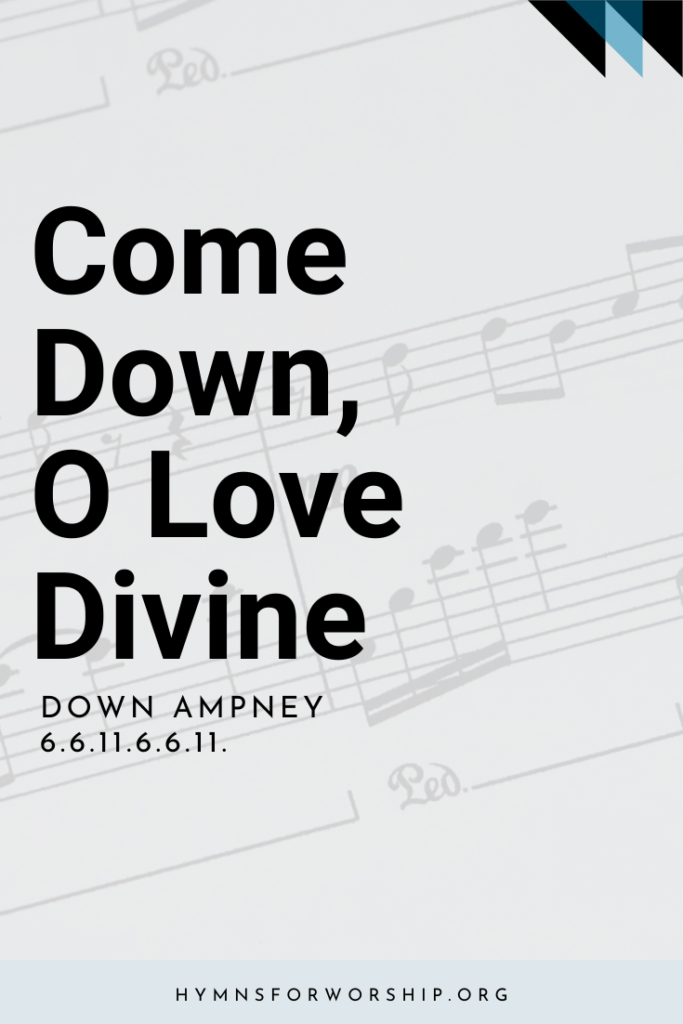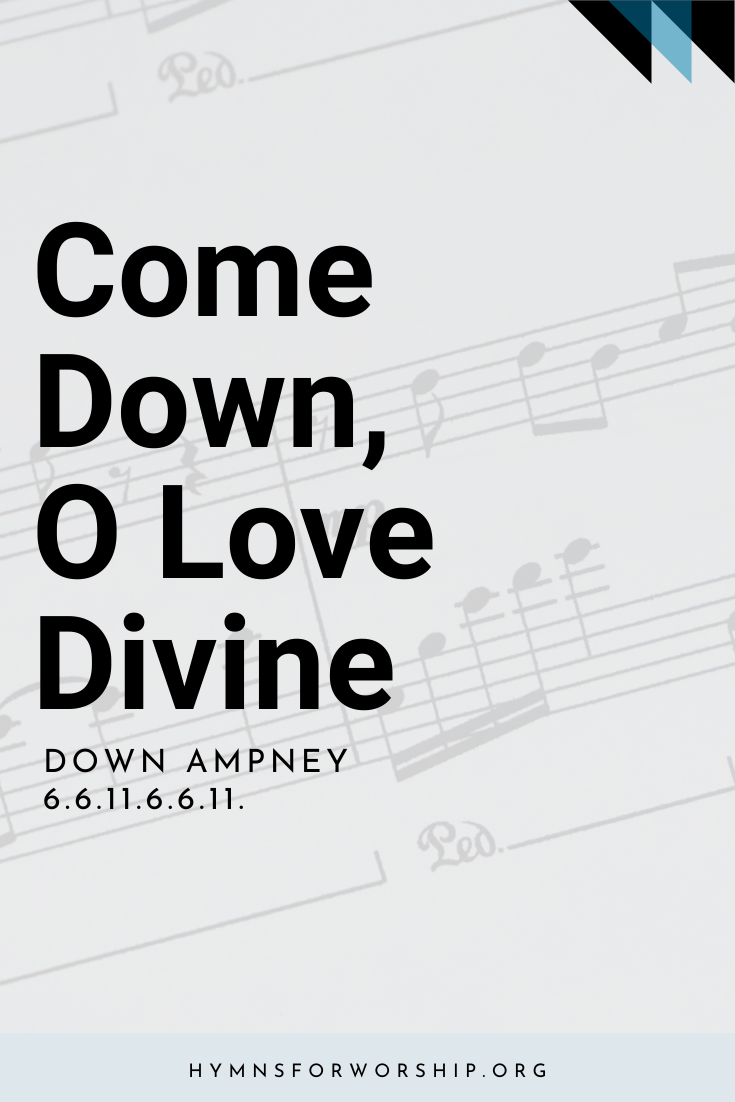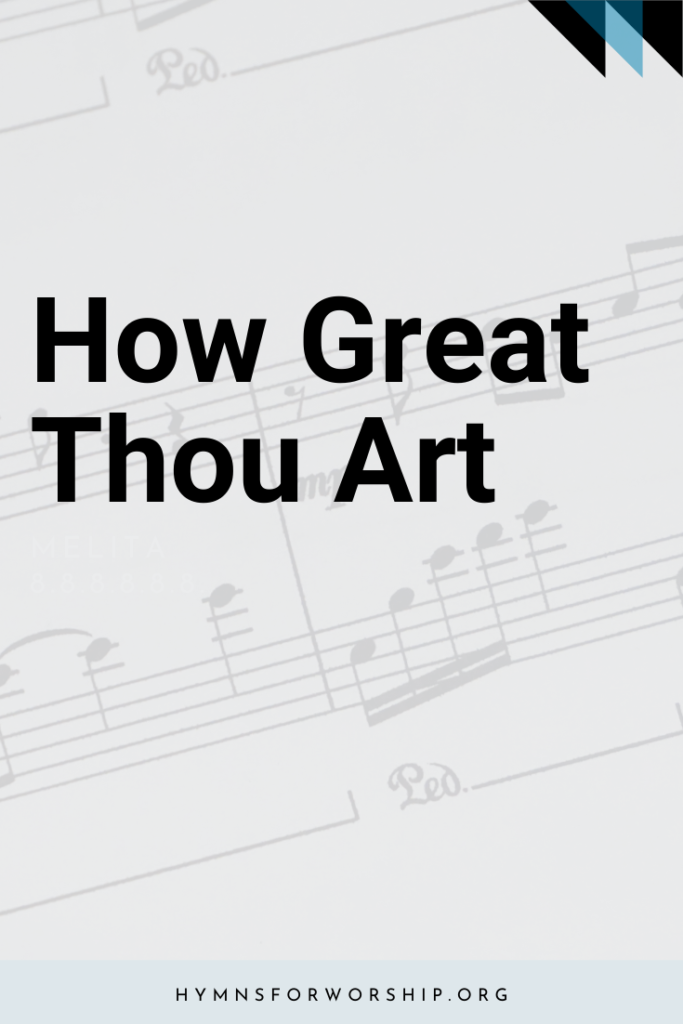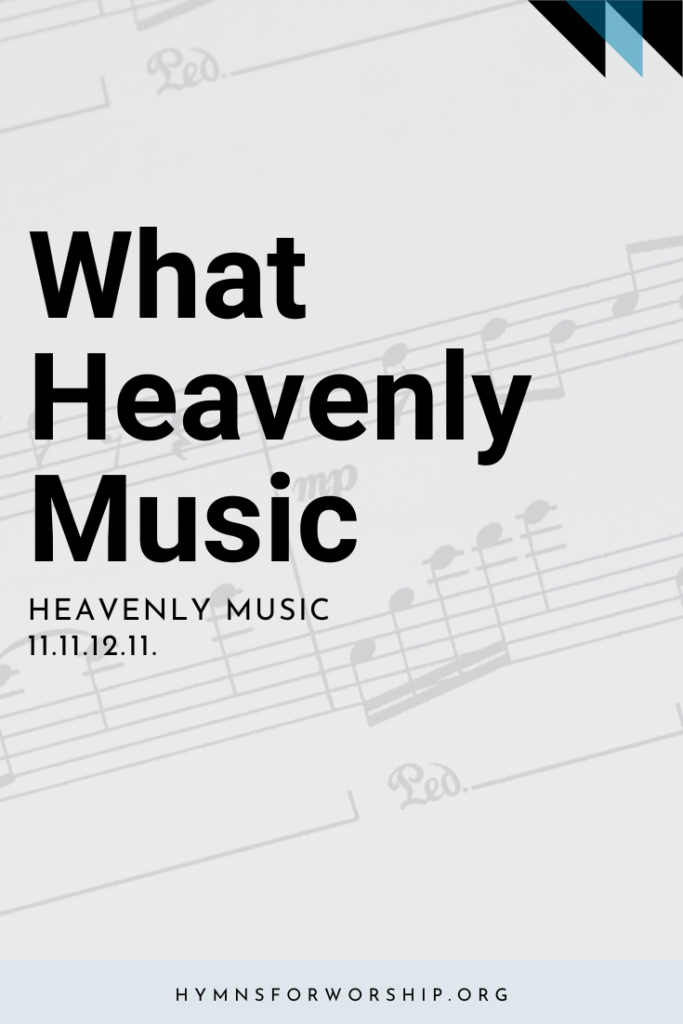HOLY SPIRIT
SDAH 257
Come down, O Love divine, seek thou this soul of mine
and visit it with thine own ardor glowing;
O Comforter, draw near, within my heart appear,
and kindle it, thy holy flame bestowing.


Text
1
Come down, O Love divine, seek thou this soul of mine
and visit it with thine own ardor glowing;
O Comforter, draw near, within my heart appear,
and kindle it, thy holy flame bestowing.
2
O let it freely burn, till earthly passions turn
to dust and ashes in its heat consuming;
and let thy glorious light shine ever on my sight,
and clothe me round, the while my path illumining.
3
Let holy charity Mine outward vesture be,
And lowliness become my inner clothing;
True lowliness of heart which takes the humbler part,
And o’er its own shortcomings weeps with loathing.
4
And so the yearning strong with which the soul will long
shall far outpass the power of human telling;
for none can guess its grace, till Love create a place
wherein the Holy Spirit makes a dwelling.

Hymn Info
Biblical Information
(a) John 14:16 (b) Matt 3:11 (c) Eph 4:2 (d) 1 Cor 3:16
Author
Bianco da Siena (?-1434)
Translator
Tr. Richard F. Littledale, 1867 (1833-1890)
Topic
Holy Spirit
Copyright Information
Music from The English Hymnal by permission of Oxford University Press
Piano Accompaniment
Notes
Get to know the hymns a little deeper with the SDA Hymnal Companion. Use our song leader’s notes to engage your congregation in singing with understanding. Even better, involve kids in learning this hymn with our homeschooling materials.
There were stanzas in the original poem by Bianco, the first one beginning “Descendi, amor santo,” meaning Descend, holy love.” It was included in Laudi Spirituali, a collection of hymns in the vernacular (Italian) language (as opposed to the Latin used in the Catholic service), written by Bianco but not published until some 400 years later. The hymns were sung by people known as “Laudisti”, Italian congregations in the thirteenth and fourteenth centuries who cultivated congregational singing of these simple hymns of praise and devotion in their own language. This hymn was first published by Telesforo Bini at Luca, Italy, in 1851; the translation in English was published in the People’s Hymnal, 1867.
Bianco da Siena’s birthdate is unknown, but he was born September 14, 1833, in Dublin, Ireland, was virtually at the top of his class all the way through his education at Trinity College, Dublin. He received the B.A. degree in 1855, the M.A. in 1858, the LL.B. and LL.D. in 1862, and if that were not enough, the Doctor of Civil Law from Oxford, also in 1862. Along the way he became a University Scholar First Class, gold medalist in classics, and gold medalist in Greek. Ordained in 1856, he served as pastor of two parishes for only about five years before ill health forced him to retire to less strenuous work. For the rest of his life he distinguished himself by writing 50 books on theology, history, the liturgy, and hymnology. One influential book was Plain Reasons Against Joining the Church of Rome, 1880. Besides writing original hymns, carol, and metrical litanies, he translated hymns into English From Danish, Swedish, Greek, Latin, Syriac, German, and Italian. He published Carols for Christmas and Other Seasons in 1863. He died in London January 11, 1890.
DOWN AMPNEY is named after Vaughan Williams’ (1872-1958; see Biographies) place of birth, near Cirencester, Gloucester, England. He wrote it especially for this text to be in English Hymnal, 1906. At first it was marked “Anon”. He also marked the suggested tempo as “one quarter note equals 88,” which seems terribly slow to us now. Erik Routley characterizes this tune as “perhaps the most beautiful tune composed since OLD HUNDREDTH.” It is the universally accepted tune for this text.






